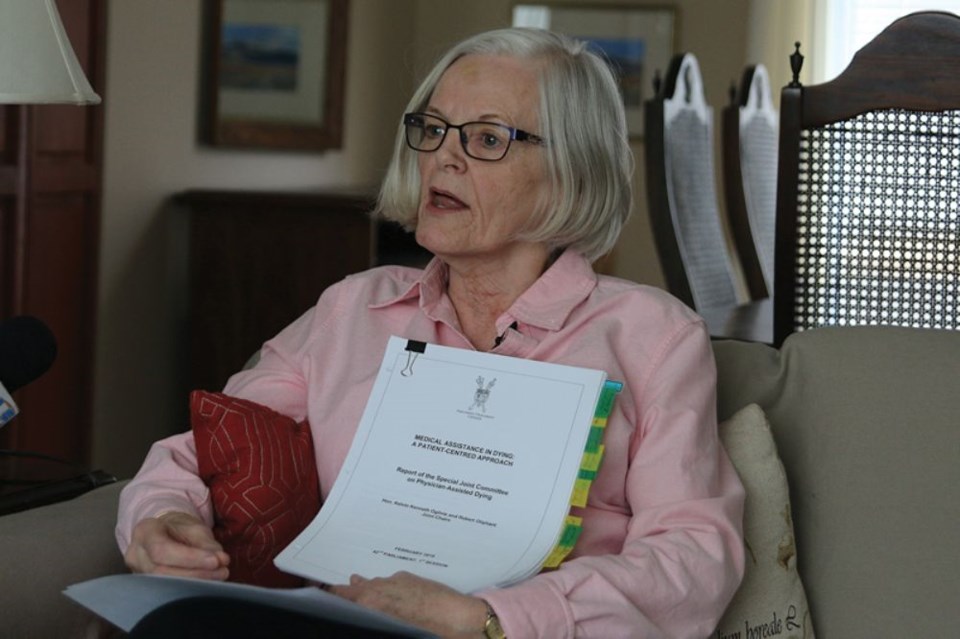THUNDER BAY – The federal government’s proposed medically assisted death law is “restrictive” and “cruel” to those seeking an end to terminal suffering, says a past president of Dying with Dignity Canada.
The legislation was tabled Thursday in the House of Commons by the Liberal government, in response to last year’s ruling from the Supreme Court that the ban on doctor assisted dying was unconstitutional.
The bill says only mentally competent adults “who are suffering intolerably and for whom death is reasonably foreseeable” are eligible for medically assisted death.
Despite waiting many years for legislation that gives those in great pain and suffering a way out, Sheila Noyes said the bill leaves much to be desired.
“I’m really concerned and I’m so disappointed. I had anticipated it would be far more than what is proposed (Thursday),” she said.
At the time of their ruling early last year, the Supreme Court gave the government one year to prepare a new law. After being elected in the fall, the Liberals requested and were given a six-month extension that put the deadline to June 6 to get a bill through Parliament.
A parliamentary committee prepared a report which was released earlier this year with 21 recommendations for the legislation.
Noyes said that document, which she described as being very patient-centred, went through extensive discussions and consultations but many of those recommendations were missing from the legislation.
The legislation excludes mature minors, patients with a degenerative mental illness such as dementia that would later impact their ability to provide consent.
Particularly troubling is the need for a patient to have a 15-day reflection period from the time their application is approved to die.
“To say you need to reflect on it for 15 days is to me so cruel and it’s the kind of cruelty we had anticipated would end with this bill,” she said.
Noyes has been an advocate for assisted death after witnessing her mother and sister both go through prolonged, debilitating illnesses that left them wanting to die on their own terms, an option that was not available to them.
Her mother died in 1989 and her sister died in 1991.
This new legislation states a person must be in an irreversible state of decline with death being reasonably foreseeable.
To Noyes, that element just creates unnecessary suffering.
“I just can’t fathom why that would be an acceptable thing to put in. It’s just stunning to me,” she said.
“This is about choice and suffering. There is absolutely no merit in suffering.”
